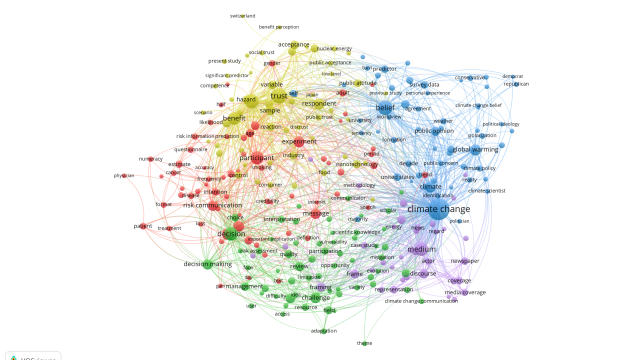Should green consumption mean less consumption?

As the consequences of climate change and environmental breakdown start to appear, awareness of "green" issues and sustainability in the products and services that we consume is rising. Consumers have become more aware of the impacts of their purchases, and businesses are innovating in response; labels such as “natural”, “organic”, “sustainable” or “eco-friendly” have proliferated in response to a growing demand for “green products”.
In conversations around sustainable consumption, the emphasis is often on businesses: how can they produce and promote greener products? However, the transition to a more responsible future must also involve both consumers and politicians. It's becoming increasingly accepted that governments need to promote environmental reform through regulation and policy. But an important question remains: to become truly sustainable, how must the lifestyles and consumption habits of consumers change?
Green awareness
Green movements started to appear during the late 1960s, as environmental awareness started to grow. Environmentalists have since promoted changes in consumption and practices such as encouraging the use of public transport and recycling. Increasing awareness of environmental problems and their consequences are also a consequence of globalization and how personal decisions can have a global impact. These changes, however, have been stronger in Western Europe and North America, than in Latin America.
At present, green consumption has been related to the need to lower the use of energy and material in our everyday consumption as well as a more sustainable use of resources. Consumers are now engaged in a new discourse related to sustainability where the experience of protecting the environment can also be related to the experience of having a healthy life. In some spheres, this discourse has become stronger and is reflected in the conformation of green parties in the political spectrum. In Peru, there is not a green party but the environmental discourse is widely related to left-wing groups which question extractive activities.
Environmental conscious vs consumers
But what makes an individual a green consumer? Are green consumers defined to an extent by their social and economic background? In most cases, green products are more expensive than non-green products, which makes them difficult to afford for those on limited incomes. In countries where inequality, poverty and social vulnerability are entrenched, the transition to greener products can represent different forms of exclusion - as for different reasons, these products are not accessible for excluded groups.
In contrast with this, some excluded groups such as low-income people have a greener lifestyle than some so-called "green" consumers, as they have a more sustainable use of resources in their daily activities. Yet they are not considered green consumers as their consumption habits usually involve plastics, as these are normally cheaper.
“ But an important question remains: to become truly sustainable, how must the lifestyles and consumption habits of consumers change?”
Then, what really defines a green person? Consuming green products, a sustainable use of resources or reducing their consuming habits? Green consumption needs to be understood under a framework of environmental reform, but also as individual reform in people's everyday lives.
Green purchases must be analysed from two important positions. One of them, related to health and a green lifestyle, and the other one related to an ethical behaviour which responds to a more socially responsible behaviour. In both cases the construction of a moral identity from a social perspective is very significant.
Consuming green products is usually related to a natural lifestyle, free of chemicals which ensures a healthier life. A balanced life is also associated to a more ethical behaviour in a social and environmental way in harmony with nature and respect for communities. This means that the products one is consuming will not have a negative impact in the environment or other communities, with the possibility of generating a positive impact.

Despite this, it is important to note that even if consumers have environmental awareness and intentions to protect it, this will not necessarily translate in purchasing decisions. In order to understand this, it is important to analyse the different factors which surface when purchasing a green product. Availability of the product as well as price are both important factors that could be limiting when purchasing a green product.
The “green purchasing inconsistency” explained by Yoshi and Raham refers to the gaps between consumers intentions and their actions appear. An example of this is that, although many consumers have a positive intention to purchase organic food, only a small number end up actually doing so (Yoshi and Raham 2015). Nonetheless, there is still not enough evidence to understand the dimension of this gap.
On the other hand, green consumers, in addition to being concerned about the environment and consuming green products or services should evaluate their consuming habits in order to cultivate a less consume habit and reduce their carbon print, as most green products or services have production processes which one way or the other alter the environment. The role of individual in addressing this issue is crucial.
What’s going on in Peru?
At present, in alliance with Libelula and the global initiative Green Economy Coalition (GEC), Foro Nacional Internacional has been working as part of the Peruvian Hub for the GEC, supporting the encouragement of green initiatives in Peru (economiaverde.pe), which intend to have a positive environmental, social and economic impact. Different products or services are created to ensure a responsible use of resources. Many of these initiatives expect to tackle inequalities through their actions in order to have a positive social impact, but also to bring the green movement and benefits to all individuals.
Leslie Forsyth, Executive Director (e) of FORO Nacional Internacional
Photo by Dan Freeman on Unsplash


